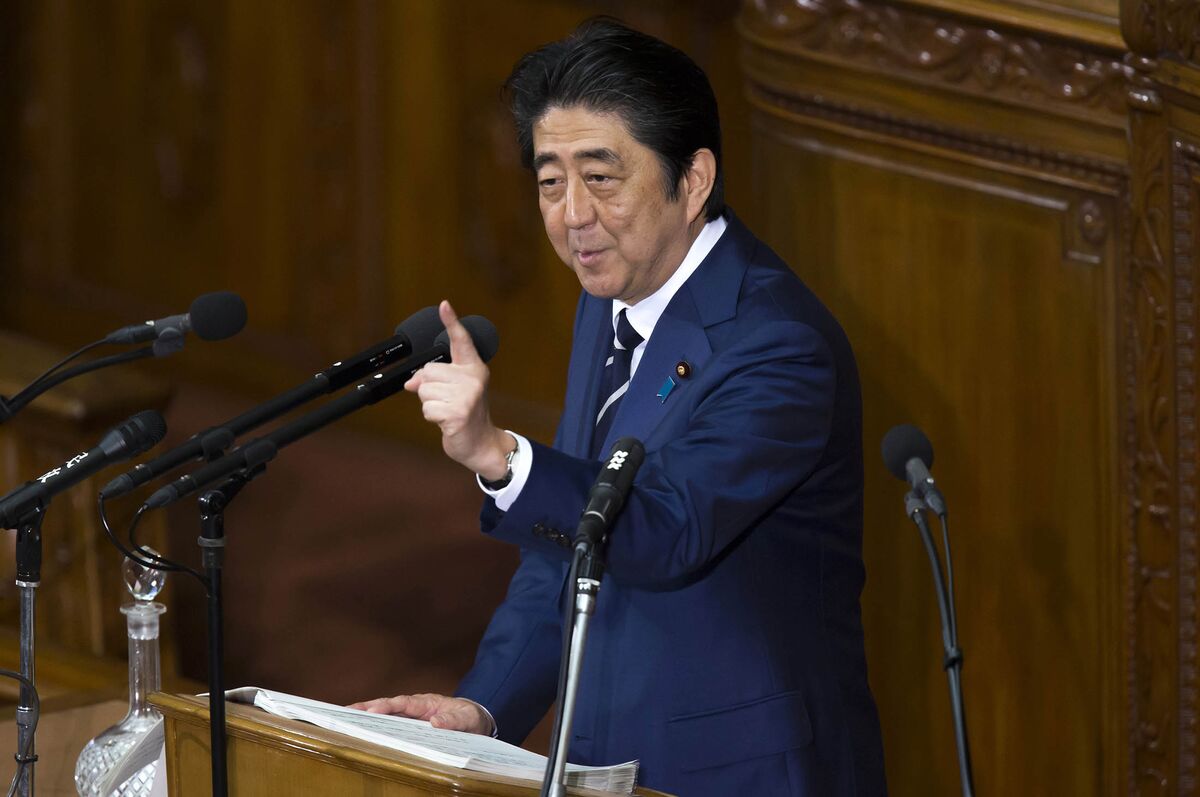
In little more than a month, Shinzo Abe’s public support has nosedived. Polls show many voters have lost trust in the Japanese prime minister after a series of scandals. And they think his long-running administration, in power since 2012, has turned arrogant. The popularity plunge has already caused pain: Abe’s ruling Liberal Democratic Party suffered defeat in this month’s election for Tokyo’s local assembly. The question now is how far it will affect national elections due before the end of 2018. What’s turned voters against Abe?
His problems began with a ruckus over his wife’s connections to the operator of a kindergarten (which promotes prewar nationalist principles) who was given a sweetheart land deal to open an elementary school. Then a second education-related scandal unfolded when a close friend of Abe’s received government support to open a veterinary college. Gaffes and mis-steps by LDP lawmakers haven’t helped; Defense Minister Tomomi Inada resigned today over a cover-up involving the military’s reports on Japan’s peacekeeping activities in South Sudan. Neither has the rushing through of a controversial anti-conspiracy bill, nor Abe’s apparent haste to revise the pacifist constitution. Does this mean Abe will be forced to step down?
Abe, 62, has denied involvement in the scandals, and most analysts say he will limp on, because of the lack of compelling alternatives. (If he stays in power through 2020, he’ll be the longest-serving Japanese prime minister in history). The main opposition Democratic Party’s relentless focus on Abe’s woes has helped to undermine support for the premier, but its leader resigned this week and its approval ratings are poor. Who might be the next party leader?
LDP rivals are positioning themselves for a leadership election expected in September 2018. A poll found the public’s top choice was former Defense Minister Shigeru Ishiba, who lost to Abe in 2012 and has become an increasingly outspoken critic of the administration. Since the selection of party leaders often depends on internal party politics rather than public opinion, Foreign Minister Fumio Kishida, the head of a major LDP faction, is also a strong contender. Is there anything Abe can do?
Faltering Japanese premiers have often relied on cabinet reshuffles to bolster support, especially by appointing younger faces or or women to convey a fresh image. But Abe has little room for risky appointments this time, and in a shake-up expected early next month he’s set to retain stalwarts such as Chief Cabinet Secretary Yoshihide Suga and Finance Minister Taro Aso. "If you’re looking for scandal-free people who are good at debating, you end up with people who have already served," says Tomoaki Iwai, a professor at Nihon University in Tokyo. When will Abe call the next election?
He’ll most likely hold off for as long as possible, says Yu Uchiyama, a professor of politics at Tokyo University. An alternative scenario would be to go to the nation this year in a bid to preempt the possible formation of a national opposition party by popular Tokyo Governor Yuriko Koike. That option has become more likely with the resignation of opposition leader, according to Michael Cucek, an adjunct professor at Temple University, Japan. What does this all mean for policy?
Abe vowed this week to focus on the economy, a pledge that has helped him win all national elections since 2012. But he has not abandoned a divisive plan to revise the pacifist constitution. The question is whether he can appoint a cabinet capable of navigating both issues. Rival LDP pressure groups have formed, one to push for more spending to bolster the economy and another whose members have warned that the indebted country is on the verge of fiscal collapse. What are the markets saying?
Goldman Sachs Group Inc. recently cut its six-month forecast on the benchmark Topix share index, saying that political uncertainty will drive investors to book profits. A sudden resignation by Abe would be very disappointing for markets, UBS Group AG analysts wrote.
The Reference Shelf.


0 comments:
Post a Comment